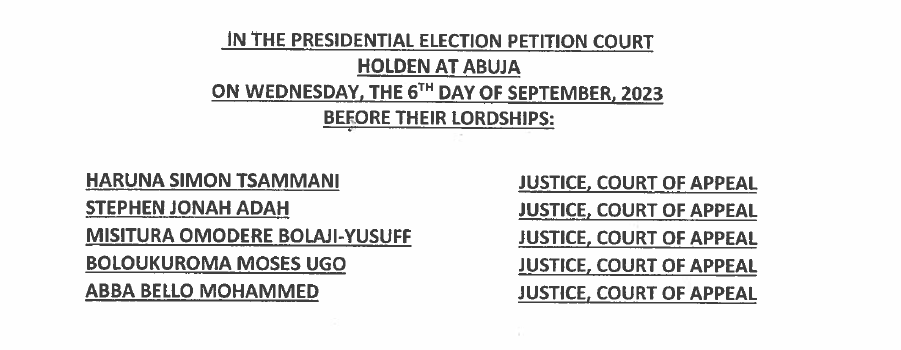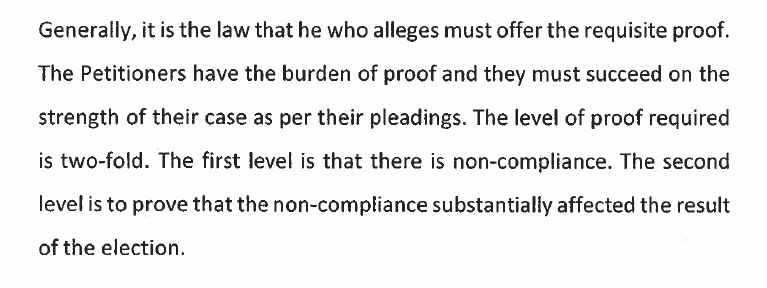OPINION: An Analysis of the Judgment of the Presidential Election Petition Tribunal in Nigeria
A typical electoral judgement in African judiciaries. It is focused on technicalities and judicial interpretation that is meant to sustain the election.
RULE OF LAW2023 ELECTIONS
Joshua Malidzo Nyawa
9/9/20232 min read


After having gone through the 798 paged judgement of the Nigerian Presidential Election Petition Tribunal, here is a brief summary.
Introduction: A typical electoral Judgement in African Judiciaries. It is focused on technicalities and judicial interpretation that is meant to sustain the election.
The lead judgement is about 752 pages. Unfortunately, about 300+ pages are dedicated to a summary of arguments, striking out of paragraphs, witness statements and exhibits. Truly focussed on technicalities (Raila 2013 scenario). The justification for such an attitude is addressed by Justice Adah who states that elections are sui generis, there must be complete compliance with procedure and there is no cure for non-compliance.
There were four issues for determination. The first issue was whether Tinubu was qualified to contest. The constitution bars anyone who is found liable for fraud etc. The court held that the constitution only meant criminal conviction and not civil forfeiture.
The second issue was whether the Electoral Commission was mandated to transmit the election results electronically. The court finds that the Electoral Act does not require so, but the requirement is only introduced by the regulations. Therefore, it was not required. This is despite the fact that the Electoral Act provides that the Commission should provide for the manner of transmission. The regulations mandatorily require presiding officers to transmit results electronically. A problematic finding.
The other problematic finding by the court is that although there is a requirement for results to be uploaded to the IReV (INEC Result Viewing portal), the court says that it is meaningless, it is just for collating results and only the hard copies matter. Why was it created?
On the threshold to nullify the elections, the court seems to favour the substantiality test. Non-compliance with the law and how it substantially affected the results. Although not much ink goes to explain this test.




Indeed, every cloud has a silver lining. Despite the lamentations above, the court seems to have gotten it right on the standard of proof. That election petitions should be proved on a balance of probabilities. Kenyan SCORK remains isolated with its intermediate test.
Overall, the decision sets such an unfair burden of proof for the petitioners while most of the information is normally held by the electoral body. Time to rethink the burden of proof question.


JOSHUA MALIDZO NYAWA is an Advocate of the High Court of Kenya and a reader in Comparative Constitutional Law and Judicial Adjudication of Electoral Disputes.


